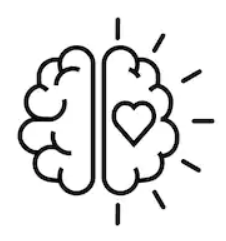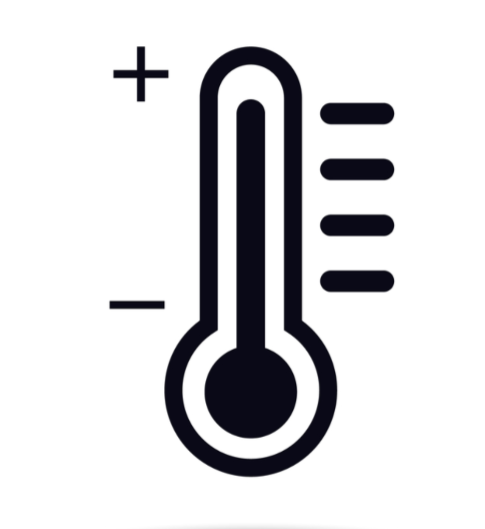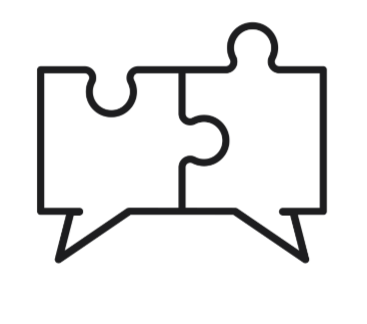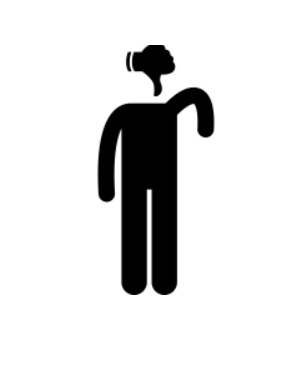CURRICULUM MENU
RIH offers a curriculum composed of ten dynamic in-person modules on core skills which are central to building resiliency and maintaining professional fulfillment. Our session content draws from conceptual approaches in psychology and translates and applies them to clinical medicine. Each lecture is designed to maximize learner engagement with a combination of didactic teaching, small group exercises, and large groups discussion using relevant real-life clinical scenarios.
The modules start with intrapersonal (operating within oneself) topics such as balancing emotions and regulating stress. The curriculum then moves to topics relating to navigating challenging interpersonal issues such as how to manage conflict and build healthy professional boundaries. Finally, focus shifts to lifelong career development with topics such as giving and receiving feedback as well as working with self-criticism and perfectionism.
We will tailor our curriculum to your group’s specific needs. The entire curriculum can be taught sequentially with each section building on previous work. Alternatively, you can choose a selection of topics which appeal to your group, a la carte. Issues such as clinical specialty, patient population, and local professional culture may impact this decision.
Below is a more detailed exploration of each module that we offer.
SECTION ONE:
Foundational Intrapersonal Skills
Module 1: Anatomy of Emotion
Discerning & Managing Strong Emotional Episodes - Part 1
This module breaks down strong emotional responses into a staged sequence including triggering, the emotion program, and the emotional behavior. As a participant, you will explore the first two stages conceptually, work with them experientially in small groups, and learn four strategies to become more mindful and flexibly engaged with your emotions.
Discerning & Managing Strong Emotional Episodes - Part 2
This session focuses on the emotional behavior stage and the fourth, reflective stage of the sequence. Using clinical scenarios, you will learn common threat response patterns and distinguish between unconscious reactions and conscious responses. Next, the module will equip you to discern adaptive from maladaptive behaviors resulting from an emotional episode and provide strategies to effectively alter these patterns.
Module 2: Befriending Your Nervous System
Understanding Stress States & Pathways
This module details the pathways which we automatically and unconsciously access when responding to stress. We will examine the two stress states: hyperactivated fear and anger as well as hypoactivated shutdown/collapse. Participants will also explore the concept of the “window of optimal functioning”- a third state of relaxed, resourced, and related presence from which you are able to engage in more attuned and efficacious interactions. These states underly and impact our cognitive, emotional, and physical functioning and are essential in consciously navigating our daily living.
Part 2: Managing Stress & The Art of Self-Regulation
Once the importance of correctly identifying and tracking our own stress state is appreciated, the challenge arises of how to more effectively regulate ourselves. This module explores approaches to self-regulation- both calming/soothing hyperactivation and energizing/ enlivening hypoactivation- with a focus on how to return to the '“window of optimal functioning.”
Module 3: Survey of Key Foundational Practices
This module provides an experiential introductory survey of four fundamental practices. Each modality supports an essential stance of relaxed and alert presence and allows us to connect more closely to our own experience. This aware connection is key to building nervous system and emotional regulation, focus, flexibility, and wellbeing.
Breathing Meditation
Somatic or Body-Centered Practices
Compassion Practice
Movement Practice- Qi Gong
Differing styles are covered in order to emphasize several central principles such as individual variability and preference, generation of soothing versus enlivening impact, as well as practical workplace feasibility.
SECTION TWO:
Navigating Challenging Interpersonal Dynamics
Module 4: Conscious Conflict: A Three Path Approach
As health care professionals, the context that stresses and depletes us most is conflict. Unfortunately, within increasingly complex, managed, and service-oriented health care systems, conflict is increasingly pervasive.
This module introduces effective approaches to managing conflict and offers three approaches which may be utilized in any given situation:
1) Establishing healthy boundaries
2) Investing in the relationship
3) Asking for change
While these approaches are held as co-equal in importance, you will discover that one path may prove more efficacious in a specific clinical scenario. We will see where our inherent strengths are and practice building capacity with all three approaches. The aim is towards increasing confidence, flexibility and efficacy in managing conflict.
(Subsequent modules further elucidate these three approaches)
Module 5: Healthy Professional Boundaries
Our personal boundaries are something of which most of us are largely unconscious. We only become aware of them when there is a significant boundary transgression. With examples spanning from someone interrupting a patient interaction to ask us a nonurgent question, to a patient inquiring if we’re married, boundary transgressions large and small are a constant source of stress and energy depletion.
This module explores the characteristics of healthy interpersonal boundaries and recognizes that they fall within a spectrum from loose, porous boundaries to rigid, impermeable boundaries. Using relevant examples from clinical practice, participants will identify their own unique boundary style and build comfort in setting firm and appropriate boundaries.
Module 6: Right Brain Relational Skills
In medical training and culture, we learn a style of communication that is meant to identify, understand, and treat problems. This occurs in a professional environment wherein questioning, advising, and teaching are centrally important modes of connecting. And yet, you may periodically find that there are situations with patients, and especially colleagues, where this analytic problem-solving approach doesn’t work well. When others are having challenging emotional experiences that don’t lend themselves to easy solutions, a qualitatively different, right brain mode of communication can be enormously helpful in supporting others to share and process experience and move towards their own clarity or acceptance- without being fixed or advised.
In this module, you will be introduced to skills related to 1) active and observational listening 2) reflecting content and emotion, as well as 3) validating and asking deepening questions. These skills will help you be with patients and colleagues in difficult situations that need support in finding their own resolution more so than fixing.
Module 7: Asking for Change
When patients or colleagues are acting in ways that are challenging to us, communicating our position without triggering aggressive or defensive reactivity in the other can be difficult. This is especially true if these relationships are close, longstanding, or personally and professionally important to us.
Using a Non-violent Communication based approach, this module provides a roadmap to approaching asking for change in a way that maximizes the chance that our position will be heard, respected, and responded to. It supports communication in the midst of conflict which is kind, clear, and effective.
Module 8: De-Escalating Disruptive Patient Behavior
De-Escalating Disruptive Patient Behavior - Part 1
Few scenarios are more stressful and disturbing to clinicians than an escalated or acting-out patient. This session presents a staged conceptual map delineating four levels of patient escalation/stress. Participants will learn how to recognize a patient’s movement through these levels and learn effective responses for each. Participants will also practice early-stage interventions, focusing on both verbal and non-verbal de-escalation strategies.
De-Escalating Disruptive Patient Behavior - Part 2
This module dives into interventions for severely escalated patients, including limit-setting. In addition, participants will cover the important process of aligning with patients after de-escalation. An example of this is an approach to repairing relationships after a rupture.
SECTION THREE:
Building Career-long Growth & Reflection
Module 9: Giving and Receiving Difficult Feedback
One of the most vulnerable and challenging positions we can experience professionally is getting feedback. In medicine, the task can be even more challenging given that our jobs entail a broad spectrum of cognitive, emotional, relational, and systems-based skills. Conversely, there is nothing that can generate more positive impact than skillfully delivered feedback.
In this module, we will discuss creating an optimal context for sharing feedback and practice framing nonjudgmental, specific, and actionable content. We will also explore four modes of listening that help us receive feedback fully and practice strategies for eliciting and curating information. This approach moves the receptive process from a passive to a proactively engaged stance.
Module 10: Self Judgment Mistakes & Perfectionism
Physicians tend to be highly oriented towards mastery and success. As many of us have succeeded partly due to a strong sense of error-avoidance or even perfectionism, sensing that we might have erred can be extremely challenging. Patterns around self-criticism can lead to three separate but related issues that may significantly our professional lives.
Persistent Self-criticism
Maladaptive Perfectionism
Imposter Syndrome
This module aims to normalize errors and focus on the opportunity they offer for growth. Furthermore, we will learn on-the-spot practical approaches to disengage our inner critic and calibrate our energy towards change that emphasizes positive growth. Longer term approaches to reshaping our relationship with self-criticism will be addressed as well.











